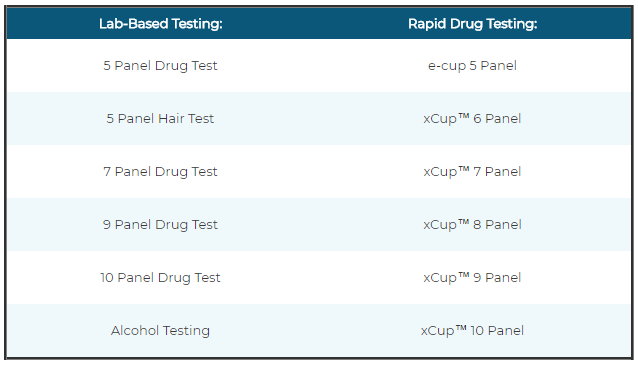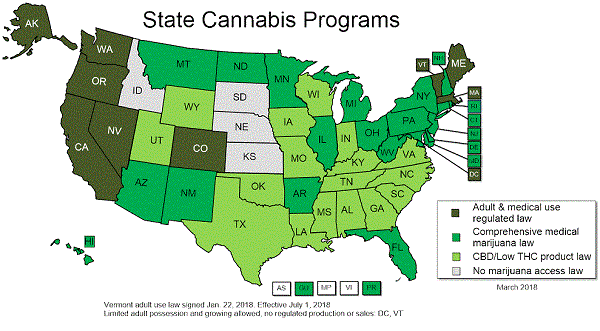ONE SOURCE DRUG TESTING SERVICES
Lab-Based and Rapid Drug Testing includes gas chromatography/mass spectrometry (GC/MS), electronic results reporting and data management. Screening and gas chromatography/mass spectrometry (GC/MS) is performed at a certified Substance Abuse and Mental Health Service Administration (SAMHSA) lab. Lab-based testing includes evaluations by a licensed physician known as a Medical Review Officer (MRO).
Rapid Drug Testing is an under-seal urine collection device and electronic testing system. There is no human intervention* once the urine sample is collected. The special eCup lid contains testing strips that are digitally screened by the eReader system. This system can test up to 10 abused prescriptions and illicit drugs and report results electronically within 15 minutes.
*Unless sent to lab

Drug Testing and Marijuana Laws
“Drug-free workplace programs help improve workplace safety and health in organizations of all sizes and in all industries. They also play an important role in fostering safer and drug-free families, schools and communities across the United States.” (DATIA, 2018). “Generally, a comprehensive drug-free workplace program includes five components: Drug-Free Workplace Policy, Supervisor Training, Employee Education, Employee Assistance and Drug Testing” (DATIA, 2018).
When creating a drug-free workplace program it is important to become familiar with federal, state and local regulations related to drug testing and marijuana laws. The legalization of recreational and medical marijuana is a thriving topic for state legislators. New state regulations governing marijuana laws are being implemented at a expediate rate. Legal counsel is advised when making hiring decision to limit liability. One Source The Background Check Company cannot serve as a Designated Employer Representative (DER) to create or implement a drug free workplace program or provide legal advice to clients.
According to the National Conference of State Legislatures (NCSL), “A total of 29 states, the District of Columbia, Guam and Puerto Rico now allow for comprehensive public medical marijuana and cannabis programs. (See Table 1 below for more info.) Approved efforts in 17 states allow use of “low THC, high cannabidiol (CBD)” products for medical reasons in limited situations or as a legal defense” (NCSL, 2018).

Join Our Newsletter
Resources
 5 of the Top Reasons to Use Continuous Criminal MonitoringFebruary 15, 2024 - 12:20 PM
5 of the Top Reasons to Use Continuous Criminal MonitoringFebruary 15, 2024 - 12:20 PM One Source Ranked as an HRO Today Pre-Employment Screening LeaderJanuary 15, 2024 - 12:21 PM
One Source Ranked as an HRO Today Pre-Employment Screening LeaderJanuary 15, 2024 - 12:21 PM A Comprehensive Review of Screening ComplianceDecember 5, 2023 - 1:09 PM
A Comprehensive Review of Screening ComplianceDecember 5, 2023 - 1:09 PM
